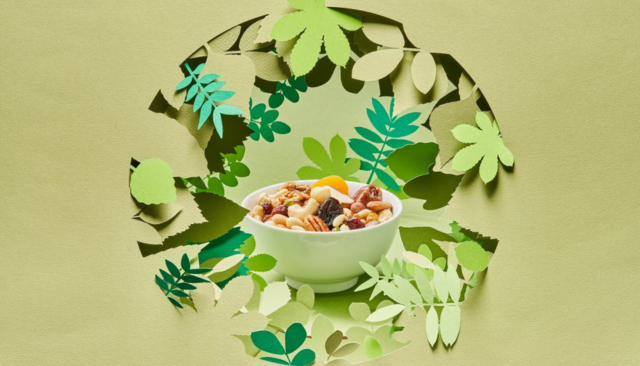Category: Back to the Planet
Project title: Shisa Macadamia Shell Eco-Briquettes
Project type: Product Design and Innovation
Relevant SDG(s):
- Goal 12: Responsible Consumption and Production
- Goal 13: Climate Action
- Goal 15: Life on Land
Primary topic(s):
- Advanced Processing and By-Product Utilization
- Circular Economy
- Climate Resilience and Adaptation
- Community Development and Engagement
- Sustainable Sourcing and Procurement
- Energy Efficiency and Renewable Energy Integration
- Waste usage
Relevant product(s): macadamias
Project end date: Ongoing. Duration: 14 months (to March 2025)
Location: Currently manufactured in South Africa. Currently sold in South Africa and the Netherlands.
Is this a multi-collaborative project? South African macadamia nut farmers and processor. South African macadamia cracking factories. Future collaboration planned with macadamia farmers and processors globally.
ABSTRACT:
Background and Objectives
Shisa Macadamia Shell Eco-Briquettes was conceived as a creative, sustainable solution to two major challenges: the management of agricultural waste in the macadamia industry and the rising global need for renewable, lower-carbon energy sources. Each year, macadamia processors generate large volumes of nut shells, a by-product often relegated to landfill or open burning. Recognizing the environmental impact and lost value, Shisa sought to repurpose these shells into premium briquettes that burn cleanly and efficiently, thereby promoting circular economy principles and addressing pressing sustainability goals like reducing greenhouse gas emissions.
The overarching objective is clear: transform a significant waste stream into a renewable, carbon-neutral fuel source that delivers performance equal to or better than traditional charcoal and firewood. By converting macadamia shells into briquettes, Shisa Macadamia Shell Eco-Briquettes simultaneously reduce deforestation driven by the charcoal industry and cut back on landfill waste. While conventional firewood requires the harvesting of living trees, Shisa exclusively uses an all-natural by-product of nut processing, ensuring no additional tree felling.
These briquettes offset carbon emissions naturally, because the trees that produced shells have already absorbed equivalent CO2 during their growth. In essence, Shisa Macadamia Shell Eco-Briquettes actively demonstrate how innovative thinking can bridge the gap between agricultural by-products and sustainable energy solutions.
Scope and Scale
Initially, the project’s scope has focused on local markets in macadamia-producing regions of South Africa. Shisa established a dedicated production facility to mill and compress the shells, creating its own, now-patented, specialized machinery that achieves optimal briquette density. These long-burning, high-energy briquettes offer excellent heat retention, rivalling –and often outperforming– commonly used charcoal.
From its local beginnings in South Africa to its expansion into the Netherlands, the project has the potential for considerable scale-up. Given that macadamia cultivation extends beyond South Africa to other regions around the world, the Shisa model can be replicated wherever macadamias are processed. This global applicability promises broader environmental impact, new job creation and extended economic opportunities for farmers and processors. Furthermore, by strengthening collaborations and strategic partnerships across the supply chain, from processing facilities to retail partners, Shisa is poised to transform waste into a valuable, climate-positive resource in multiple markets.
Key Components
- Raw Material Sourcing: Shells are supplied by trusted macadamia farmers and processing partners, ensuring a reliable and high-volume waste stream.
- Production Process: Advanced milling and compression techniques convert raw shells into dense briquettes that burn with minimal smoke or odor, maintaining a clean user experience.
- Carbon-Neutral Combustion: Because these shells sequestered carbon throughout the nut’s growth, the net carbon footprint of burning the briquettes is effectively neutral.
- Market Distribution: Packaged for both household consumers (for barbeques, heating) and commercial operations seeking sustainable, high-performance fuel alternatives.
Innovation and Creativity
Shisa Macadamia Shell Eco-Briquettes demonstrate the power of circular innovation by transforming an overlooked agricultural by-product, traditionally viewed as waste, and converting it into a superior fuel source. While agricultural residues often end up in landfills or incinerators, Shisa’s approach closes the resource loop, embodying the principles of a circular economy. The non-carbonized briquette design not only cuts down on smoke and air pollutants but also provides an aesthetically pleasing long-lasting flame.
Beyond addressing waste reduction, the initiative proactively combats deforestation by reducing demand for virgin wood charcoal and breaking the cycle of unsustainable fuel production. Given that macadamia shells are inherently dense –one of the densest tree nut shells– Shisa Eco-Briquettes achieve extended burn times and high heat output for both cooking and heating applications, demonstrating how a simple waste product can outperform traditional hardwood fuels. By showcasing how agricultural waste can be a premium energy source, Shisa positions itself as a leader in biomass utilization, encouraging other sectors to explore upcycling opportunities. This forward-thinking leadership in design, manufacturing and sustainability sets a new standard for the nut and dried fruit industry at large.
Significant Results Achieved
The project has already demonstrated measurable environmental benefits. By offering a cleaner-burning, carbon-neutral alternative, Shisa Macadamia Shell Eco-Briquettes reduce harmful emissions linked to traditional firewood and charcoal production. The project also creates economic value in the local communities through job creation and by providing farmers and processors with an additional revenue stream from their shells. As a result, participating macadamia processors are more invested in sustainable practices, seeing firsthand how responsible waste management can generate new market opportunities.
Through consumer awareness campaigns, Shisa Eco-Briquettes have gained traction with environmentally conscious users, replacing or supplementing conventional fuels used in household barbeques and heating applications as well in commercial kitchens. This growing demand underscores the viability of the product and affirms its role as a catalyst in transitioning toward greener, waste-free energy solutions.
OBJECTIVES:
Shisa’s primary objectives were to divert macadamia shells from landfill or open burning, replace wood and charcoal fuels that drive deforestation and offer a carbon-neutral energy source. By converting waste into premium briquettes, Shisa Macadamia Shell Eco-Briquettes reduce the industry’s environmental footprint while providing farmers and processors with a new revenue stream. In doing so, the project demonstrates how a circular economy approach can transform agricultural by-products into impactful, real-world solutions that advance global sustainability.
IMPACT AND OUTCOMES:
Environmental Impact
Shisa addresses multiple environmental challenges tied to conventional fuels. Chief among these is deforestation, a pressing issue in regions where firewood and charcoal are derived from old-growth forests. In Africa alone, an estimated 3.9 million hectares of forest are lost annually (FAO, 2020), with charcoal production contributing to forest degradation in macadamia-growing countries like South Africa, Kenya, and Malawi. By converting macadamia shells –an otherwise wasted by-product– into a renewable fuel, Shisa reduces the need for tree harvesting, mitigating habitat destruction and biodiversity loss while curbing the substantial carbon emissions associated with cutting and transporting wood. Furthermore, as macadamia trees naturally absorb CO₂ during growth, the briquettes maintain a carbon-neutral burn cycle.
Shisa Eco-Briquettes also reduce particulate emissions compared to traditional charcoal, lowering risks of respiratory ailments in communities reliant on open-fire cooking and heating. With a hotter, cleaner flame, users face less smoke exposure, improving air quality in rural and urban settings.
Reduction of Waste Streams
Before Shisa, macadamia shells were often relegated to landfills, open-air incineration or low-grade boiler fuel –none of which fully utilized their high energy potential. By redirecting these shells into premium briquettes, Shisa reduces landfill waste, cuts methane emissions and eases pressure on waste management systems. This repurposing aligns with the company’s strong adherence to circular economy principles, turning overlooked by-product into a productive asset.
Moreover, the success of Shisa has encouraged macadamia processors to adopt more responsible waste-handling practices. Processors now recognize the commercial value in what had been an underutilized stream, promoting sustainable resource stewardship across the supply chain. As the project grows, so too does its potential to minimize waste on a global scale.
Economic and Social Benefits
On an economic level, Shisa bolsters local communities by creating jobs and establishing new revenue opportunities. Farmers and processors who supply shells can now gain financially from what was once a disposal cost, improving their resilience in an industry subject to fluctuating crop prices. In addition, the production of these briquettes requires skilled labor, spurring job creation in rural and semi-urban areas, contributing to local economic growth.
The briquettes themselves also offer a more affordable, longer-lasting alternative to other fuels, particularly in areas where charcoal is expensive. By providing a lower cost, more efficient fuel, Shisa helps to stabilize fuel access for both households and commercial users, improving energy security. These dual economic and environmental benefits make Shisa a compelling model for sustainable development.
Circular Economy Leadership
A hallmark of Shisa’s approach is its embodiment of a truly circular model: waste from one process (macadamia nut production) becomes the input for another (fuel briquettes). This synergy not only optimizes resource use but also drives home the transformative potential of by-product utilization. By pioneering advanced milling and compression techniques to unlock the naturally high energy in macadamia shells, Shisa sets a bold example for other industries –demonstrating that agricultural residues can powerfully replace virgin materials when handled with innovation and care.
In doing so, Shisa is helping reshape the notion of “waste” in the broader nut and dried fruit industry. Through outreach and collaboration, the project highlights a pathway for other crops, such as peanut shells or walnut husks, to be similarly upcycled into clean, profitable energy solutions. Over time, these collective efforts can catalyze a more resource-efficient global food system.
Measurable Outcomes
Shisa’s impact is evident in its performance advantages over traditional fuels:
- High Energy Density: With a density of approximately 1.35 g/cm³, Shisa Eco-Briquettes surpass typical commercial briquettes (0.3–0.5 g/cm³), ensuring a hotter, longer burn per unit of fuel.
- Comparable Calorific Value: At around 19.36 MJ/kg, Shisa matches or exceeds the heat potential of standard firewood, making it equally suited for home heating or high-quality cooking applications.
- Minimal Ash Residue: Producing just 2.6% ash, Shisa drastically reduces post-burn waste compared to wood or coal-based fuels, which can yield ash contents as high as 16%.
- Low Moisture Content: With moisture levels hovering near 1.46%, these briquettes ignite faster and maintain higher combustion efficiency than many conventional briquettes containing 10–18% moisture.
Together, these performance metrics offer a cleaner user experience and a lighter environmental footprint. Field studies comparing Shisa usage to traditional charcoal indicate reductions in greenhouse gas emissions equivalent to driving a car over 40 kilometers per bag of briquettes burned. These carbon savings accumulate with each bag sold, reinforcing the environmental impact of Shisa’s adoption.
Future Prospects
Shisa is well-positioned for replication in other macadamia-growing regions. By refining production and forming new strategic partnerships, Shisa aims to expand its distribution and further displace unsustainable fuels. Ongoing R&D will explore additional biomass sources, strengthening the project’s capacity to enact positive, large-scale environmental change. Ultimately, Shisa Eco-Briquettes stand as both a testament to the power of circular innovation and a scalable blueprint for harnessing agricultural by-products to protect forests and communities alike.
In what ways is the project innovative?
Shisa Eco-Briquettes redefine agricultural waste management by transforming macadamia shells into a carbon-neutral, premium fuel. This innovation merges circular economy principles with advanced milling and compression processes that preserve the shells’ natural high energy density. Rather than merely substituting raw materials, Shisa’s non-carbonized approach produces fewer pollutants while yielding a striking flame and robust heat for both cooking and heating. By turning waste into a superior alternative to firewood and charcoal, Shisa not only reduces deforestation but also advances biomass utilization to a new level of performance and sustainability –proving that agricultural by-products can evolve into profitable, high-impact energy solutions.
More information:




